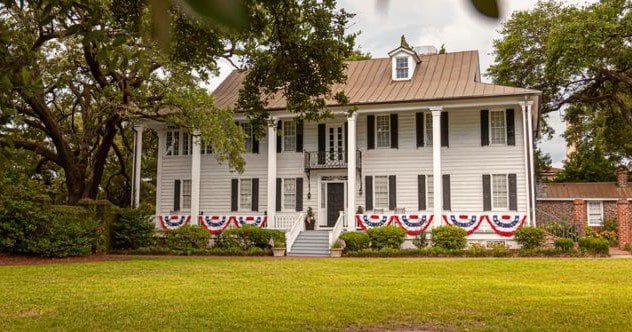Slang is always funny, especially when it’s from a bygone era. It’s amusing to see how terms fade, get replaced, or become the subject of jokes by later generations. Think of phrases like “cowabunga,” “totally tubular,” or even more recent terms like “on fleek.” They sound goofy now, right?
And just imagine the current slang that’ll be ripe for ridicule in the future! Everything from “on God” to “fr fr” and “rizz” will eventually sound dated. That’s what we’re diving into today, but with a twist—we’re going way back in time.
In this post, we’re exploring ten hilarious slang terms that were used in the American South before the Civil War. These sayings eventually died out due to the war and the passage of time, but back in the day, they were a common part of Southern speech. Some of these terms are genuinely funny, and you might even want to bring them back!
10 Hoppin’ Clods

If you noticed that “clodhopper” sounds a lot like grasshopper, you’re right! A “clod” is a lump of dirt or mud. This term has agricultural roots, like many slang terms from the South during that time.
A clodhopper was basically a country bumpkin or hick—someone unrefined. It was a slightly insulting way to call someone too “country.” Interestingly, “clodhopper” has meant other things, too. Centuries ago, it referred to a blood clot, and at another point, it meant a heavy shoe for walking through farm fields.
In the pre-Civil War South, a clodhopper was someone a bit too redneck for most folks. Some people still use the term, but it’s rare. Maybe we should revive it, since “redneck” might be getting old!
9 Fugglin’ Fracas

One of the strangest antebellum slang terms is “honey-fuggled.” It means to be hoodwinked, deceived, or flattered by a conman or fraud. If someone promises you something that turns out to be fake, you’ve been honey-fuggled!
The term was first documented in 1829 in Kentucky, according to the Virginia Literary Museum. It spread throughout the South over the next three decades but mostly died out after the Civil War. By the early 20th century, it was rarely used. Still, it had a good run and is certainly a funny term to remember today!
8 Damned Devil!

You might know it as a “sunshower”—rain falling while the sun shines. In the American South, they had a different, wild phrase for it: “the devil is beating his wife.”
Symbolically, the phrase suggests that the sun represents the devil showing off his fire and damnation. The rain is his wife’s tears as she’s being struck. It’s grisly and macabre!
Surprisingly, similar idioms exist in France and Hungary. The French say “the devil is beating his wife and marrying his daughter,” while Hungarians say, “The devil is beating his wife with a walking stick.” The phrase was popularized in the antebellum South, and now you know it too!
7 No Smokin’

Tobacco was a big deal in the pre-Civil War South, driving the economy and deeply intertwined with slavery. So, it’s no surprise there was tobacco-related slang. The most common term was “lucifers,” which were matches—the wooden sticks you’d strike to light up a cigarette!
The term “lucifers” came about in the 1830s from a match brand made by Samuel Jones. Like Kleenex, the name became a generic term for any match used to light cigarettes. It stuck around until the mid-19th century but faded after that brand lost prominence.
6 Pickin’ Teeth
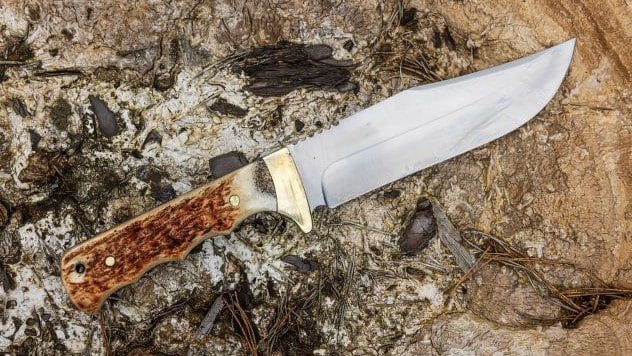
Calling a knife a knife just wasn’t enough—Southerners needed to be more specific! Even specifying a Bowie knife wasn’t enough. Back in the day, Southerners called a Bowie knife an “Arkansas Toothpick” (or, if they liked Missouri, a “Missouri Toothpick”).
Using that kind of name was a not-so-subtle way of insulting people from those states, implying they were backwoods hicks (or clodhoppers!). After all, who uses a knife as a toothpick? The upper classes of the South looked down on the unrefined folks, believing there were many in Arkansas, thus “Arkansas Toothpick” was born and has stuck around ever since.
5 Down and Out in the South

Ever feel depressed or down in the dumps? Then you might have the “mollygrubs.” This strange term has been used in Arkansas and other parts of the South for a long time. It actually dates back to the late 16th and early 17th centuries.
The English brought “mollygrubbing” to the New World, and it really took root in the South. Before the Civil War, Southerners often lamented the “mollygrubbing” they experienced when feeling despondent. It was particularly popular in the Appalachian Mountains and nearby regions. Though rare today, it’s still used occasionally.
4 Let Sleeping Snakes Lie
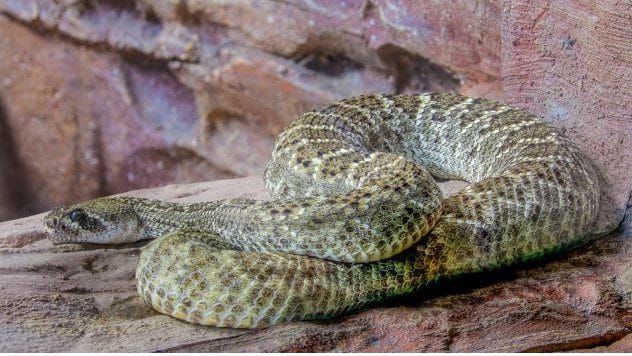
Two centuries ago in the Deep South, if someone was being so loud that they were disturbing everyone, they were said to be “waking snakes.” It’s a simple phrase that creates a vivid image. If someone is yelling, jumping, and generally causing a ruckus, they’re “waking snakes” that are sleeping underground.
The phrase was popular in the antebellum era, appearing in dictionaries documenting colorful Southern phrases. And if you’re like most people, snakes are scary, right? So the phrase is a good reminder to keep calm and quiet and NOT wake any snakes. We don’t need that creepy trouble!
3 Toad Talk
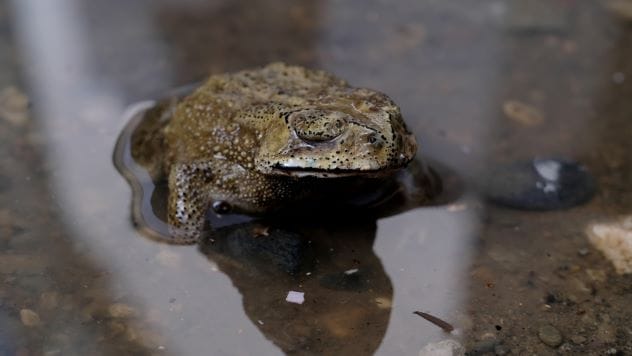
You’ve probably heard the phrase “big fish in a small pond,” referring to someone important in a small town. Instead of moving to a larger community, they stay put to enjoy their social influence. Well, pre-Civil War Southerners had their own phrase for that!
Instead of fish and ponds, they’d say someone is “the biggest toad in the puddle.” Given there were (and still are) many toads in the South, it was a unique Southern saying, often used derisively.
It meant the same thing as “big fish in a small pond” but also implied the person was a small-time nobody with an inflated sense of self!
2 Darn Good!

Next time you eat something really tasty, call it what it is: “larrupin’ good!” The phrase “larruping” comes from Texas, Oklahoma, and Arkansas and became popular before and after the Civil War. It basically means delicious or excellent, usually in the context of food.
The phrase still pops up occasionally in rural Texas, Arkansas, or Oklahoma. But it was most popular in the late 19th and early 20th centuries. We could always bring it back, though!
1 The Quick Step
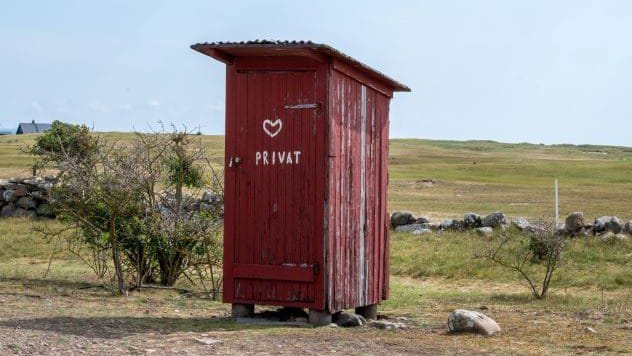
When you’ve got to go, you’ve got to go! Everyone knows what that means—time to find a bathroom fast. In the pre-Civil War South, they had a euphemism for diarrhea: “the quick step.” They also referred to those urgent runs to the bathroom as the “Tennessee Trots” or the “Virginia Quick Step.”
These names are amusing, picturing someone sprinting to the outhouse. But they also had a serious backstory. During the Civil War, soldiers on both sides suffered from diarrhea, often caused by dysentery. As many as 1.5 million Union Army soldiers were affected.
It was even worse in the South, where dysentery and diarrhea were the most common ailments reported by Confederate soldiers. Poor diets and contaminated water only made things worse. So, while funny, the Tennessee Trots and Virginia Quick Step referred to a brutal condition.
These antebellum slang terms provide a glimpse into the past, showcasing the humor and unique expressions of the Old South. While many of these phrases have faded away, they offer a fun and fascinating look at a different time.
What’s your favorite slang term from this list? Leave a comment below!


